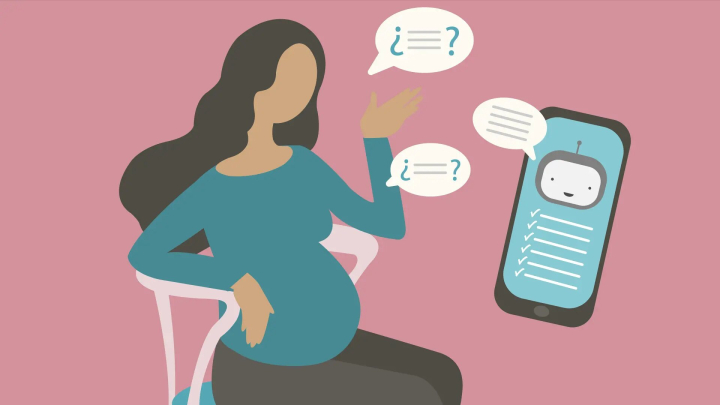‘Rosie, ¿Tiene Fiebre Mi Bebé?’
A University of Maryland chatbot under development to help bleary-eyed new moms manage the uncertainty of caring for a baby will soon field questions in both English and Spanish, thanks to a new grant from the National Institutes of Health.
The AI-based app called Rosie aims to bridge the divide in care for new mothers and babies of color by providing 24-hour, validated health information on topics ranging from medication dosages to major milestones and recognize signs of postpartum depression. It initially received a $3.7 million NIH grant in 2021; the additional $200,000 awarded last month will expand Rosie’s role as a reliable source for maternal and infant health advice for Spanish-speaking mothers.
“There are incredible health vulnerabilities at the intersection of color and socioeconomic status and that’s where there is the most need,” said researcher Quynh Nguyen, an associate professor of epidemiology and biostatistics. “We found that some moms just feel more comfortable asking questions in Spanish, so it was important to us to be able to offer the same experience for those moms.”
Rosie’s interdisciplinary team includes Nguyen; behavioral and community health Associate Professor Elizabeth Aparicio; computer science Associate Professor Jordan Lee Boyd-Graber; and epidemiology and biostatistics Associate Professor Xin He. They’ll begin clinical trials on Rosie in October, with Spanish capabilities available next year.
Click HERE to read the full article on Maryland Today
The Department welcomes comments, suggestions and corrections. Send email to editor [-at-] cs [dot] umd [dot] edu.
